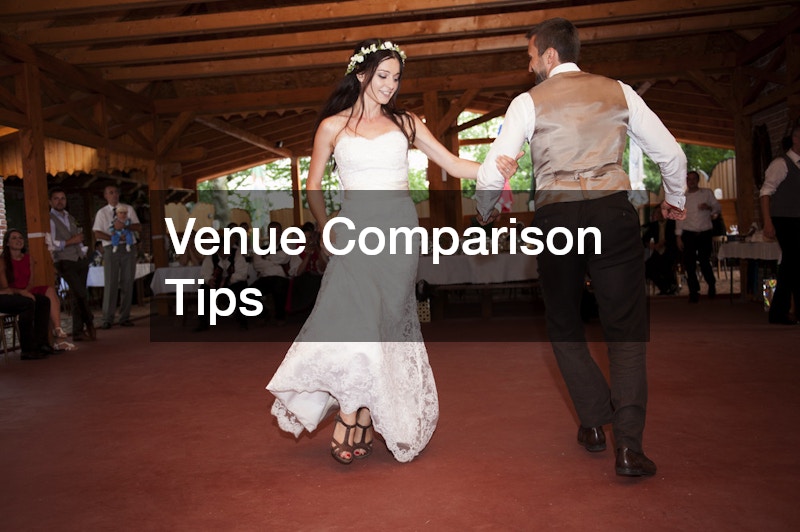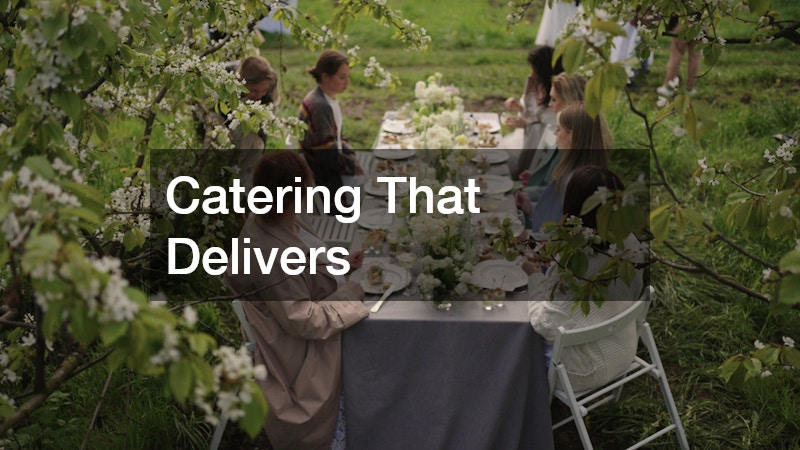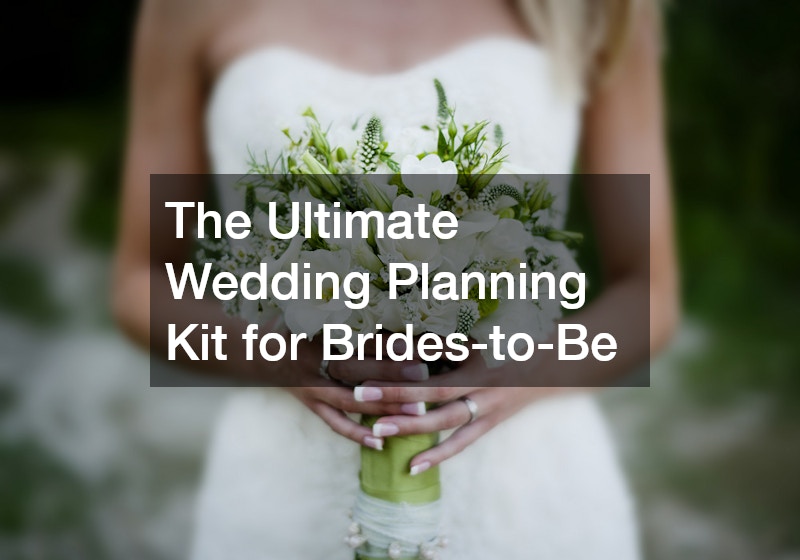Planning a wedding is one of the most exciting yet overwhelming experiences a bride-to-be can face. From finding the perfect dress to selecting a caterer, florist, and venue, the list of decisions can feel endless. That’s where having a well-organized wedding planning kit comes in. This essential tool not only helps you stay on top of the countless details involved in planning your special day, but also ensures that nothing gets overlooked. Whether you’re going the DIY route or working with a professional planner, a comprehensive kit gives you the clarity and confidence to make informed decisions at every stage.
Every bride envisions a different kind of wedding, from a grand cathedral ceremony to an intimate backyard celebration. But no matter the size or style of the event, the same categories need attention—venues, flowers, catering, jewelry, logistics, and even legal considerations. This blog is your all-in-one guide to navigating those core components through the lens of a truly helpful plan. We’ll walk you through everything from choosing the right wedding venue to the often-overlooked items like portable restroom rentals for outdoor celebrations. Each section provides practical insights and real-world considerations for today’s bride.
In addition to the classic wedding details, modern brides must also think about issues like event planners and estate documents, especially when combining households or making significant financial changes. Relocating to a new home after the wedding is another big step that ties into the planning timeline and budget. That’s why this goes beyond just decor and schedules—it helps you take control of your entire wedding journey and the transitions that come afterward. It’s not just about the big day, but the life you’re building together.
Throughout this guide, we’ll break down the major categories you’ll encounter in your planning process and dive into the logistics of outdoor setups and how to prepare for moves and legal matters. Each topic includes expert-level advice and actionable steps that are more than just a checklist—it’s a strategy. Let’s explore the ten essentials every bride-to-be should consider when organizing the ultimate celebration of love.
1. Finding the Venue
Choosing the perfect wedding venue is one of the most foundational decisions in your planning journey. It sets the tone for your entire celebration—from aesthetics and formality to guest count and budget. Whether you envision an elegant ballroom, a rustic barn, or a coastal beach ceremony, your choice of venue influences every other planning decision that follows. It’s important to start early, as popular locations book out well in advance.
When you begin scouting for a wedding venue, bring your plans along with you. This should include a checklist of your needs, sample layouts, guest list estimates, and questions to ask the venue manager. Consider things like seating capacity, lighting, accessibility, and what’s included in the rental. Some venues come with tables and linens; others are just a blank canvas. Your kit helps you stay focused and organized as you compare locations.
To make your final decision, weigh the pros and cons of each venue against your overall vision. Look at your wedding date availability, consider the commute for guests, and think about the surrounding area for photos and post-ceremony activities. With a reliable plan in hand, you can confidently choose a venue that aligns with your personal style and logistical needs.
2. Venue Comparison Tips

Wedding event venues come in many forms, from hotels and vineyards to gardens and historic estates. Understanding what each type offers—and what it doesn’t—can save you from stress and unexpected costs later. Not all venues include the same amenities, and the pricing structure can vary widely. Comparing them side-by-side is key to making the best choice for your big day.
Use your wedding planning kit to track essential comparison details. Create a grid that includes venue name, price, capacity, availability, what’s included, and any hidden fees. Visit each venue in person if possible, and take photos and notes. Ask about vendor restrictions, parking, sound ordinances, and backup options in case of weather issues. These questions may seem minor now, but they can have a huge impact later.
By compiling all this information into one place, your plan becomes your go-to resource for selecting the ideal space. With clarity on what each venue offers, you can make a decision based on facts, not just feelings, ensuring your wedding day runs smoothly and matches your expectations.
3. Planning a Church Wedding
If you’re planning a traditional ceremony, getting married in a Catholic church can be a meaningful and deeply spiritual choice. These weddings follow specific rites and traditions that require advanced preparation and often approval from your parish. It’s important to factor in church-specific requirements like pre-marriage counseling, available dates, and sacramental needs early in your process.
Incorporate a section in your planning kit for religious planning. Include documents such as baptismal certificates, church contact info, and required forms. Keep track of meeting dates with clergy, pre-Cana classes, and any other obligations. A timeline for these tasks is especially helpful since church weddings often involve more steps than non-religious ceremonies.
Respecting and fulfilling the requirements of a Catholic church wedding adds significance to your vows and structure to your ceremony. With this blog as your guide, you can ensure nothing is missed and that all preparations are handled with care and reverence.
4. Floral Style Guide

Flowers are a visual expression of your wedding theme, personality, and emotions. From the bridal bouquet to the table centerpieces, wedding flowers enhance the beauty and atmosphere of your celebration. With so many options in color, texture, and arrangement styles, it’s crucial to start with a clear vision—and a trusted florist.
Collect inspiration, note allergy considerations, and define your budget. Include photos of flowers you love, seasonality notes, and questions for florists, such as delivery fees, setup time, and preservation options. Having this on hand keeps your consultation productive and focused.
As you narrow down your choices, use your kit to create a floral map for the ceremony, reception, and bridal party. Document quantities, types of flowers, and who gets what. This keeps everything streamlined and prevents last-minute surprises. With a plan, you can coordinate a floral look that’s cohesive and breathtaking.
5. Outdoor Restroom Needs
If you’re hosting your wedding outdoors or at a location without sufficient restroom access, a portable potty rental becomes a necessary part of your logistics plan. While not the most glamorous topic, providing clean and convenient restrooms ensures guest comfort and keeps the event running smoothly.
In your wedding checklist, include a list of portable restroom providers, features (like flushing toilets or climate control), and space for notes on delivery, placement, and servicing. Consider the number of guests and rental duration when choosing the quantity. Placement should be discreet yet accessible and ideally near handwashing stations.
Adding these details to your wedding planning kit guarantees that this important aspect isn’t forgotten. By planning ahead, you can keep the focus on celebration while handling the behind-the-scenes necessities with ease.
6. Catering That Delivers

Food is a central part of any wedding celebration. It reflects your culture, personality, and hospitality toward your guests. Whether you choose a plated dinner, buffet, or food trucks, working with the right catering services can elevate your wedding experience and ensure everyone leaves happy and satisfied.
Your wedding plan should include menus, dietary restriction notes, and tasting appointment records. Make sure to gather detailed quotes and note what’s included—linens, servers, clean-up, or bar options. Also, track your meal count and communicate any vendor requirements with your venue. This section keeps your food planning as organized as possible.
The more thorough your catering section is, the smoother the day will go. From cocktail hour to dessert, every bite should feel intentional and well-planned. The wedding planning kit helps you coordinate timing, logistics, and culinary style to serve a delicious experience that fits your day.
7. Bridal Jewelry Picks
Jewelry completes the bridal look, adding sparkle and personal flair. While some brides wear family heirlooms, others opt for modern, custom jewelry that fits their aesthetic and story. Whether it’s a necklace engraved with initials or earrings that match your gown perfectly, thoughtful jewelry adds meaning to your outfit.
Include a style board dedicated to jewelry. Add designer contact info, sketches, budget ranges, and production timelines. If you’re ordering bespoke pieces, allow time for design consultation, approval, and revisions. Documenting this process ensures your jewelry is ready and perfectly coordinated with your outfit.
With your kit guiding the way, your custom jewelry becomes more than just an accessory—it’s a treasured symbol of your wedding day. By managing the process early and thoroughly, you’ll shine with confidence and style.
8. Insuring the Big Day

Few couples think about what could go wrong, but event planning insurance is a wise and often essential investment. This coverage can protect you financially from unforeseen cancellations, weather disruptions, vendor failures, and liability issues. It’s peace of mind in paperwork form.
Your wedding planning kit should have a section for insurance research and documents. Include policy comparisons, provider contacts, coverage options, and notes on what’s included and excluded. If your venue requires liability coverage, be sure to coordinate timelines and proof of insurance submission dates.
Taking this extra step might seem tedious now, but if anything goes off-script, you’ll be glad you included event planning insurance. Your kit helps ensure you’re not only dreaming big but planning responsibly.
9. Pre-Wedding Legal Tips
Marriage often brings about new financial and legal realities. Estate planning might not sound romantic, but it’s an important step toward building a secure future together. From updating wills and beneficiaries to discussing power of attorney, these actions set a strong foundation for your partnership.
In your wedding planning kit, create a checklist for legal tasks: name changes, joint accounts, and insurance policy updates. Include contact info for financial planners or attorneys, and keep copies of signed documents. This ensures nothing slips through the cracks in the whirlwind of celebrations.
Addressing estate planning together creates alignment and trust. Your kit helps navigate this grown-up part of wedding prep, turning it into an empowering process rather than a daunting one.
10. Post-Wedding Moves
After the wedding, many couples begin the exciting (and exhausting) process of moving into a shared home. Whether it’s a new apartment, a house, or blending existing households, moving requires planning, organization, and teamwork—especially right after a major event.
Create a moving checklist. Include contact info for movers, utilities to transfer, packing supply lists, and change-of-address forms. Use a timeline to coordinate the move with your honeymoon and other post-wedding activities.
By planning your move with the same care as your wedding, you create a smoother transition into married life. The kit that helped you organize your big day now helps you start your new life.
Your wedding is more than just one day—it’s the beginning of a new chapter filled with love, commitment, and shared dreams. A carefully crafted wedding planning kit empowers brides-to-be to manage every step of this complex journey with confidence and calm. From booking a venue and coordinating catering to handling legal documents and planning your move, the kit serves as your all-in-one command center for success.
As we’ve explored in this guide, each category of wedding planning deserves focused attention. Whether it’s selecting custom jewelry that reflects your style or securing event planning insurance to protect your investment, each detail contributes to the bigger picture. This will help you bring all these moving parts together in a streamlined and thoughtful way. It transforms wedding planning from stressful to strategic, offering structure without sacrificing creativity.
The journey also includes practical necessities many overlook—like portable restroom rentals, estate planning, and venue comparisons. Make sure those essentials are just as organized and prioritized as the fun parts, like flowers and food. It’s this balance of glamour and logistics that makes for a truly successful wedding day.
This ultimate wedding planning kit is all about giving you the tools, clarity, and confidence to make the wedding you envision a reality. With every checklist, folder, and calendar entry, you’re not just planning an event—you’re crafting a lifelong memory. So take a deep breath, open your kit, and start planning the wedding that celebrates your love story in every beautiful, meaningful detail.




